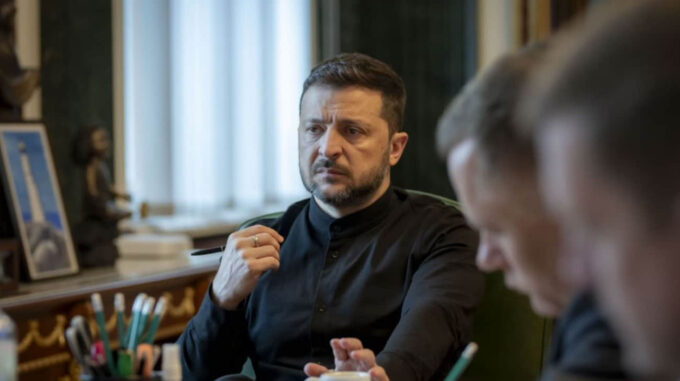Zelensky outlined the results of recent diplomatic negotiations within the framework of the so-called “Coalition of the Willing,” emphasizing the importance of international support in resisting Russian aggression

On May 20, Ukrainian President Volodymyr Zelensky conducted a series of phone conversations with leaders of key allies — French President Emmanuel Macron and British Prime Minister Rishi Sunak. What specific issues were discussed during these talks? What progress has been made in diplomacy, which today has become one of the main tools in the confrontation? According to Zelensky, during his discussions with Macron and Sunak, he addressed current issues not only related to ongoing hostilities but also strategic planning for future steps within a broader international coalition actively supporting Ukraine. The main focus remains on diplomatic efforts aimed at achieving a stable ceasefire and long-term peace. An important topic of the discussions was sanctions policy — in particular, Ukraine's leader expressed gratitude to the UK for the new British sanctions against Russia, which were introduced on the same day as European Union sanctions. Zelensky emphasized that it would be very beneficial if the United States also joined this sanctions campaign, as global unity in this sphere would improve the chances of reducing the conflict. Additionally, Zelensky noted that during his talks with Rishi Sunak, he focused on diplomatic specifics, including potential meetings capable of significantly accelerating the process of ceasefire and leading to lasting peace. A separate mention was made of a recent phone conversation with U.S. President Donald Trump, which took place after his talks with Russian President Vladimir Putin. This indicates active diplomatic efforts by Ukraine at the highest level, as each of these steps has significant influence on the overall strategic picture. Beyond discussions with European and American diplomats, Zelensky stressed that amid continuous communication within the "Coalition of the Willing," the parties agreed to maintain daily contact to facilitate quick responses to any challenges related to the war. This demonstrates serious intentions and a high level of diplomatic coordination. Regarding internal matters, during conversations with Macron and Sunak, the Ukrainian president discussed in detail issues related to supporting the Ukrainian military, developing defense cooperation, and domestic arms production. Emphasis was also placed on close coordination with the United States, as the U.S. remains a key partner in military and diplomatic spheres. Prior to this, Zelensky had several important business contacts, including with German Chancellor Olaf Scholz and Italian Prime Minister Giorgia Meloni. Meloni, in particular, reported on her phone call with Pope Francis, during which she received confirmation that the Vatican is willing to participate in peace negotiations between Ukraine and Russia to find ways to end the war. This offers additional hope for involvement of neutral international mediators in resolving the conflict, who could become an important element in achieving a fair and comprehensive peace. Thus, recent days indicate an intensification of Ukraine's diplomatic efforts on the international stage. Zelensky emphasizes that his team will continue working in close coordination with partners, supporting practical solutions and diplomatic initiatives aimed at restoring trust and stability in the region as soon as possible. What additional steps can be expected? The issue of further strategic distribution of forces and diplomatic efforts remains open, which will determine the future course of the war and prospects for long-term peace in Ukraine.

